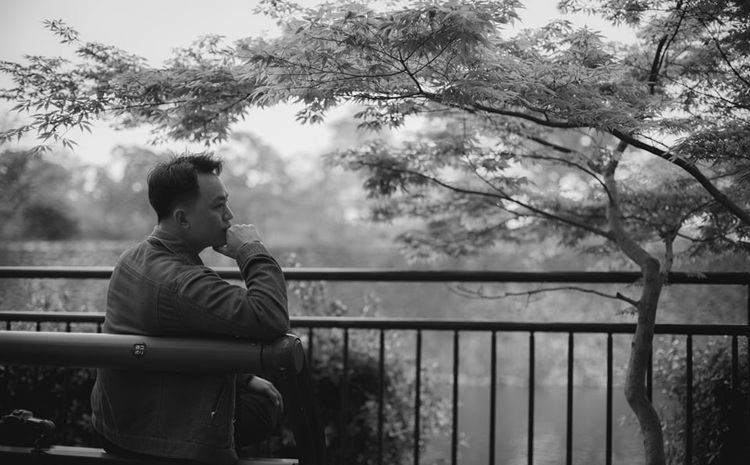Professor Peter A Jones MBE: Rethinking Recruitment: How HR and AI Create Barriers for Disabled Candidates in Hospitality.

The recent Institute of Hospitality Passion4Hospitality roundtable discussion “Hospitality: Creating Opportunities for Those with Disabilities” highlighted a critical issue: traditional recruitment methods, particularly CVs and interviews, may be fundamentally unsuitable for candidates with disabilities.
As the industry increasingly adopts AI-driven recruitment tools while maintaining conventional HR practices, new barriers are emerging that particularly affect those with hidden and invisible disabilities.
The discussion recalled Pamela Dow’s recent compelling article in the New Statesman, ”HR Britain, how human resources captured the nation,” which argues that the expanding size and remit of corporate HR functions may actually work against efficient and effective people management. This perspective was echoed in Peter Lederer’s past observations when GM of Gleneagles, suggesting that operational line managers, rather than HR departments, should handle recruitment within their areas.
The hospitality sector faces unique challenges in this regard. Its high-volume recruitment, emphasis on customer-facing roles, variable shift patterns, and fast-paced environment create specific barriers for candidates with invisible disabilities. Traditional HR practices, with their focus on “personality” and “cultural fit,” can particularly disadvantage those with conditions affecting social interaction or communication styles.
Current recruitment methods present several obstacles. Group interviews, can severely disadvantage candidates with anxiety disorders or autism, often emphasising social performance over actual job capabilities. Trial shifts frequently lack flexibility in timing and duration, and formal panel interviews, may not account for different communication styles and can overwhelm candidates who may never been put in that position before.
HR professionals may lack specific expertise about different disabilities and appropriate adjustments, leading to hesitation in recruitment or ineffective support. This when coupled with the process rigidity of the traditional HR processes and systems may inadvertently create barriers. Like any group, HR professionals can hold unconscious biases about disabilities and have a corporate risk aversion that leads to an overly cautious approach that influences recruitment decisions.
The integration of AI in recruitment compounds these challenges. Automated screening systems often prioritise specific hospitality experience, potentially overlooking valuable transferable and professional skills gained through non-traditional routes. This can particularly disadvantage candidates who may be seeking employment such as Crumbs trainees. Video interviews, increasingly common in high-volume recruitment, may misinterpret facial expressions or communication styles, creating additional stress for candidates with anxiety or autism. AI-driven personality assessments, based on behavioural norms, often fail to account for neurodiversity.
The combination of traditional HR and AI creates unique challenges in hospitality. The industry’s need for rapid recruitment conflicts with the time required for reasonable adjustments. Both HR and AI systems often maintain rigid definitions of “the role descriptions” failing to recognise different but equally effective approaches. This can exclude candidates who might excel in certain roles but present differently. Additionally, AI systems may flag candidates requiring specific scheduling needs, disadvantaging those needing consistent shift patterns for transport or health needs.
However, solutions exist. Hospitality organisations should consider implementing adaptive assessment methods that offer alternative ways to demonstrate professional hospitality skills and allow candidates to showcase their actual abilities in more familiar environments. AI systems need customisation for hospitality-specific roles while considering disability inclusion, with regular testing for bias. HR training should focus on understanding invisible disabilities in hospitality contexts and recognising diverse communication styles.
The business case for change is compelling. In an industry facing ongoing recruitment challenges, tapping into the talent pool of candidates with invisible disabilities makes strategic sense. These individuals often bring unique problem-solving skills, high attention to detail, strong commitment and loyalty when properly supported, and innovative approaches to traditional tasks.
The hospitality sector must evolve its recruitment practices to create truly inclusive pathways into the industry. Taking the ideas of both Peter Lederer and Pamela Dow and fundamentally rethinking HR practices tailored to the unique demands and opportunities of hospitality roles. Not just accepting what has gone before but rethinking what benefit candidates with invisible disabilities can bring to the organisation. Placing more responsibility with the operational managers rather than using standard HR processes. All of this will also help address the sector’s ongoing recruitment challenges while building more diverse and capable teams.
Moving forward requires recognition that diverse teams enhance customer service, work teams and workplace culture. Understanding that different approaches can achieve excellent results requires a commitment to adapting traditional practices. The challenge now is for hospitality leaders to champion this change, ensuring their recruitment processes truly serve both the industry and all potential candidates.


